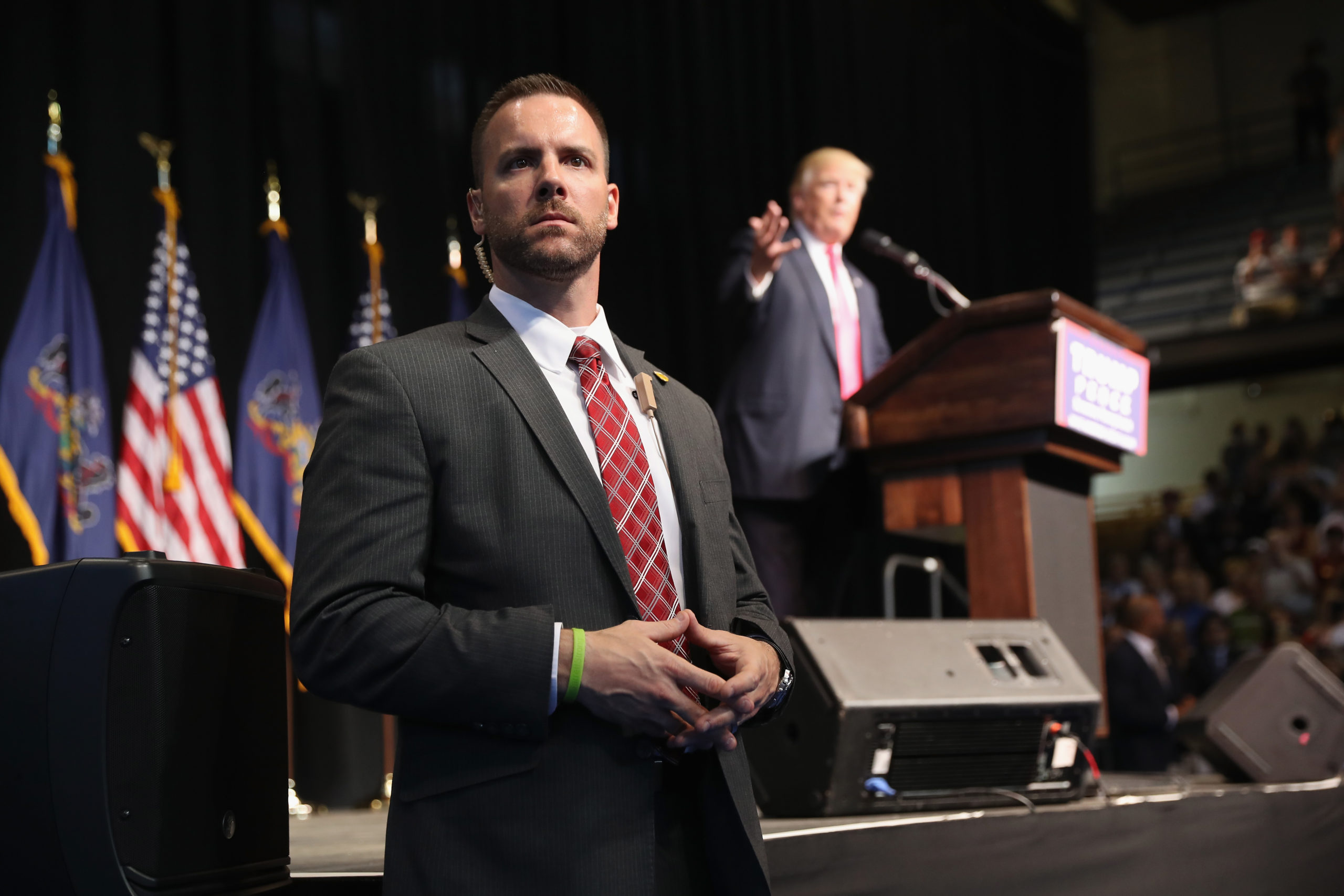- The Former Presidents Protection Act gives a lifetime of Secret Service protection to any former president.
- Another statute, the Former Presidents Act, excludes presidents who were removed from office by the Senate and is unclear on whether a removed former-president would lose protections.
- Regardless, it’s likely Trump’s presidency will naturally end before he can be removed from office, a law professor told the DCNF.
It’s unclear whether President Donald Trump would retain his U.S. Secret Service protections if he is removed from office due to the language of two conflicting laws.
The Former Presidents Protection Act became law in 2013 and grants lifetimes Secret Service protection for former presidents without specifically defining who qualifies as a former president. Though the Former Presidents Act states that a president who is removed by the Senate does not qualify as a “former president” when considering post-presidency benefits.
“The relevant statute – the Former Presidents Protection Act – gives any ‘former President’ a right to Secret Service protection for the rest of their lives. The only ambiguity is that a different statute – the Former Presidents Act – defines ‘former President’ to exclude those removed from office by the Senate. But (1) it’s not at all clear that those individuals also lose Secret Service protection; and (2) in any event, Trump’s term is going to end naturally next Wednesday before he could be removed,” University of Texas Law Professor Stephen Vladeck told the Daily Caller News Foundation.

SCRANTON, PA – JULY 27: A secret service agent scans the crowd as Republican presidential candidate Donald Trump speaks to supporters (Photo by John Moore/Getty Images)
It is unclear which definition of “former president” the federal government or courts would cite when weighing whether or not an impeached and removed president may retain Secret Service protection, according to CNN Politics.
The Former Presidents Act defines a “former president” as “a person — who shall have held the office of President of the United States of America; whose service in such office shall have terminated other than by removal pursuant to section 4 of article II of the Constitution of the United States of America; and who does not then currently hold such office,” Reason reported.
Article II, Section 4 says that the President “shall be removed from Office on Impeachment for, and Conviction of, Treason, Bribery, or other high Crimes and Misdemeanors.
“I’ve read that if he’s convicted in the Senate, he would lose some privileges accorded to former Presidents. Not sure how far that extends,” New York University School of Law Professor David Golove told the DCNF. “Of course, Congress could pass a law removing the protection. I don’t believe such a move would be ‘unconstitutional.’ But it seems like a remote possibility, at least at this stage.”
“It’s not clear, as you suggest, whether the definition of “former presidents” in the Former Presidents Act controls its use in 18 USC section 3056,” Golove added. “It doesn’t purport to control on its face, providing that the definition applies to ‘this section.’ The exceptions in the Former Presidents Act are also weirdly worded.”
If Trump is impeached and removed from office before Jan. 20 he would not be eligible for post-presidency benefits because he would not be a “former president,” according to Reason. (RELATED: REPORT: Over 130 Secret Service Officers Infected With COVID-19 Or Quarantining After Trump Campaign Season)
However, if he is impeached but not convicted before Jan. 20, Trump would still qualify as a “former president” because at that point he is out of office and cannot be removed from a position he is not in, according to Reason. At a maximum, a former president can be disqualified from holding a future office.
Baylor University Law Professors Rory Ryan and Brian Serr, Georgetown Law Professor Martin Lederman and the U.S. Secret Service did not immediately respond to the DCNF’s request for comment.
Colby McCoy contributed to this article
All content created by the Daily Caller News Foundation, an independent and nonpartisan newswire service, is available without charge to any legitimate news publisher that can provide a large audience. All republished articles must include our logo, our reporter’s byline and their DCNF affiliation. For any questions about our guidelines or partnering with us, please contact licensing@dailycallernewsfoundation.org.


